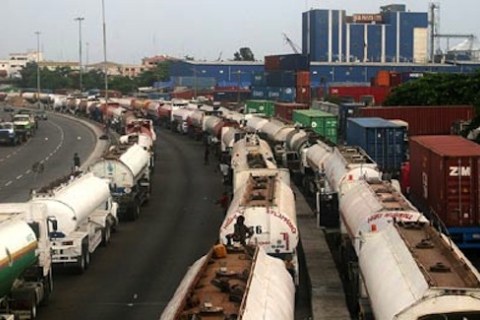Nigerians are in for more difficulties as the Nigerian National Petroleum Company Limited’s ex-depot price for Premium Motor Spirit has been rejected by the Independent Petroleum Marketers Association of Nigeria.
Marketers who control more than 70% of Nigeria’s filling stations have threatened to cease operations if NNPCL sticks to its proposed ex-depot gasoline price of N1,010 per liter.
The spokesperson of IPMAN, Chinedu Ukadike stated this to newsmen in an interview on Friday morning.
His remarks coincide with NNPCL’s announcement on Wednesday of a new statewide pricing increase for all of its retail locations, ranging from N998 to N1,030 in Lagos State and Abuja.
The state-owned business also disclosed the costs per liter that it will charge marketers, ranging from N1,040 to N1,010.
In response, Ukadike stated that the ex-depot fuel rates revealed by NNPCL demonstrated the company’s readiness to subject Nigerians to ongoing hardship.
He emphasized that petrol prices above what NNPCL sells at its retail outlets will not be tolerated by IPMAN members.
He contends that NNPCL’s actions cannot be classified as deregulatory.
He pointed out that oil marketers, who control most filling stations throughout the country, will sell the product at N1,200 per liter based on the NNPCL petrol ex-depot price of N1010.
“NNPCL is selling ex-depot in Port Harcourt at N1045 per liter, Calabar (N1040), Lagos (1010).
“We refuse the price by NNPCL. We cannot comply with the price. We will not lift NNPCL petrol, we are not interested.
“NNPCL will continue to suffer the masses. They are selling N998, why are they selling to us above the price they are selling to IPMAN members at N1010, by the time logistics cost is added, the petrol price will get to N1200,” he fumed.
This signals an impending nationwide fuel shortage.
On Thursday, it was noted that most filling stations in Abuja were not operating.
The Nigeria Labour Congress had already demanded that NNPCL immediately reverse its most recent increase in fuel prices.
On Wednesday, however, the Nigerian government placed the responsibility for the country’s rising petroleum prices on market forces.
